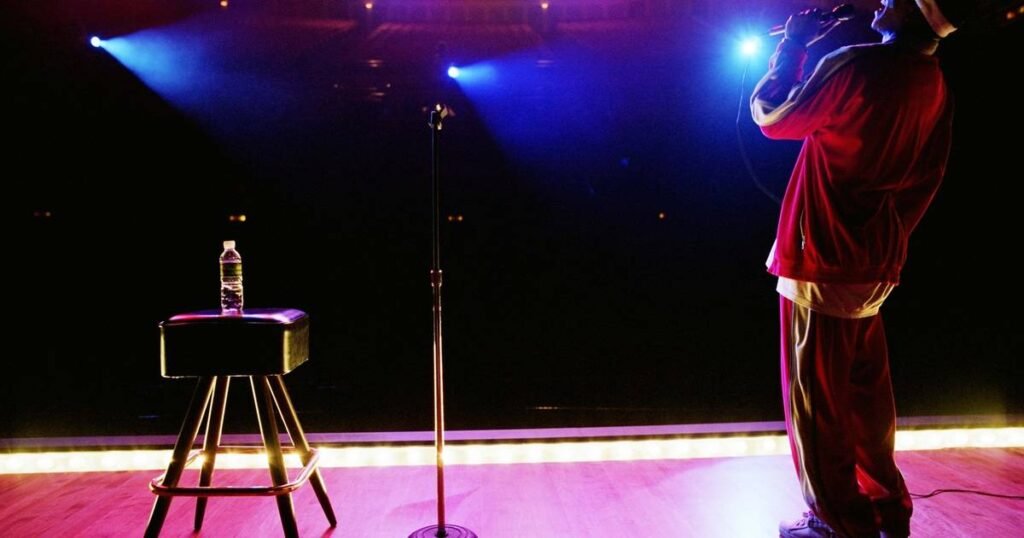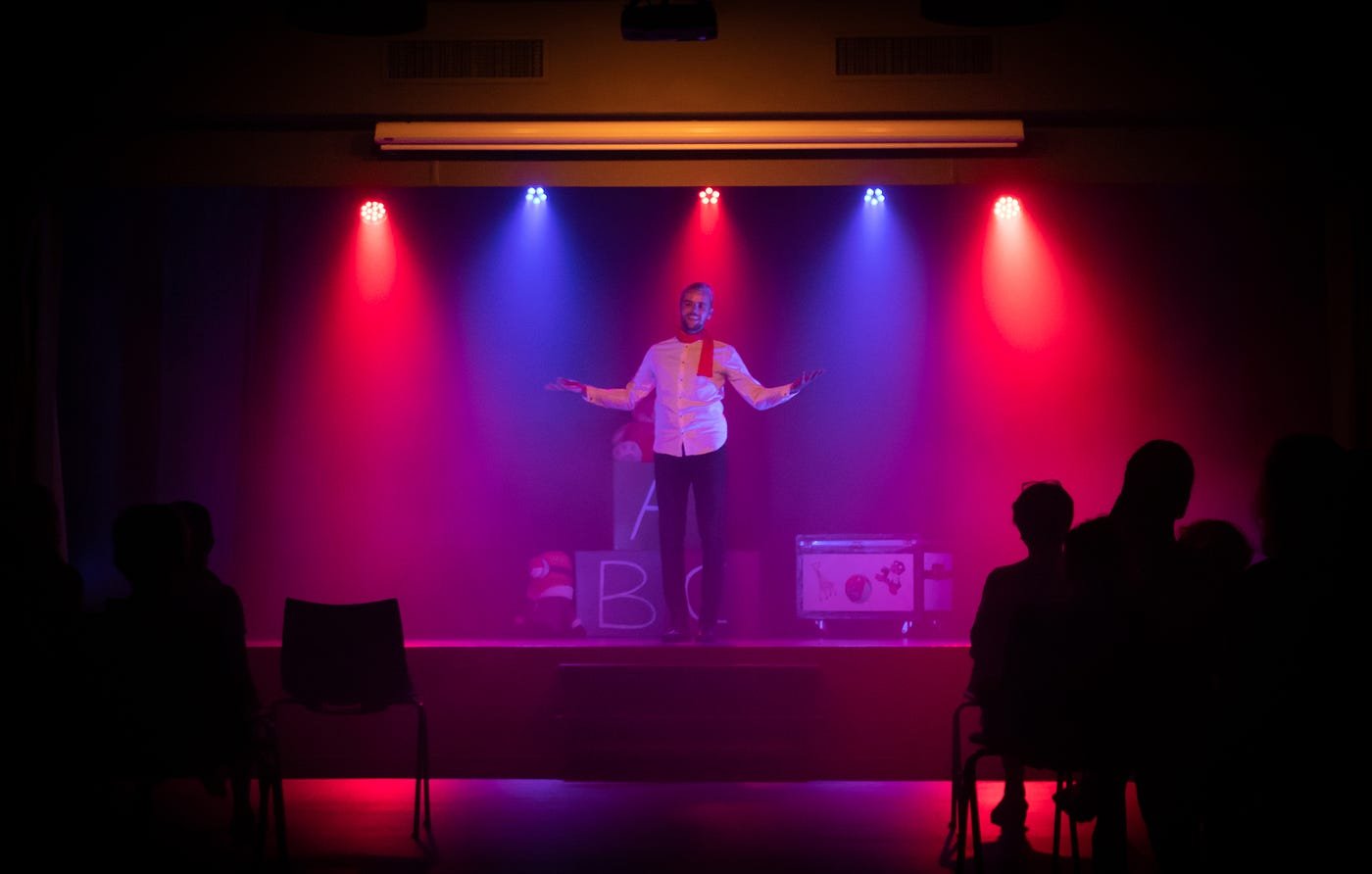The Role of Comedy in Modern Entertainment
Comedy plays a pivotal role in shaping modern entertainment landscapes, offering audiences laughter, social commentary, and cultural insights.
Evolution of Comedy in Film and Television
Comedy in film and television has evolved significantly, reflecting societal changes and pushing boundaries of humor. From silent films by Charlie Chaplin to contemporary sitcoms like “Friends” and “The Office,” comedic storytelling adapts to cultural shifts while addressing universal themes. Through satire, parody, and slapstick, comedies entertain audiences while often challenging norms and stereotypes.

Social Commentary and Cultural Critique
Comedy serves as a platform for social commentary and cultural critique, addressing relevant issues through humor. Stand-up comedians like Dave Chappelle and Hannah Gadsby use their platforms to tackle politics, identity, and societal taboos, sparking conversations and provoking thought. By blending entertainment with insightful commentary, comedians engage audiences in discussions about current events and cultural phenomena.
Influence of Digital Platforms and Online Comedy
Digital platforms and social media have democratized comedy, allowing comedians to reach global audiences with viral videos, memes, and live streams. Platforms like YouTube, TikTok, and Twitter amplify comedic voices, fostering new forms of expression and community engagement. Online comedy thrives on relatable content and rapid-fire humor, shaping internet culture and influencing mainstream entertainment trends.
Comedy Festivals and Live Performances
Comedy festivals and live performances provide platforms for comedians to showcase their talent and connect with audiences in real time. Events like the Edinburgh Festival Fringe and Montreal’s Just for Laughs attract diverse acts and comedy styles, fostering creativity and innovation in comedic performance. Live comedy shows offer immersive experiences where laughter becomes a communal activity, strengthening bonds and creating memorable moments.
Diversity and Representation in Comedy
Diversity and representation in comedy have gained prominence, with comedians from diverse backgrounds challenging stereotypes and amplifying underrepresented voices. Shows like “Insecure” and “Master of None” incorporate diverse perspectives into comedic narratives, reflecting the complexities of modern society. By embracing diversity, comedy contributes to cultural enrichment, fostering empathy and understanding across communities.
Psychological Benefits and Laughter Therapy
Laughter is known for its psychological benefits, reducing stress, boosting mood, and promoting overall well-being. Comedy’s ability to evoke laughter serves as a form of therapy, offering catharsis and emotional release. Comedy clubs, improv workshops, and laughter yoga sessions provide spaces where individuals can unwind, connect, and experience the healing power of humor.
Conclusion
Comedy continues to evolve as a dynamic force in modern entertainment, blending laughter with social commentary, cultural critique, and psychological benefits. Through film, television, digital platforms, live performances, and diverse representation, comedy entertains, enlightens, and enriches audiences worldwide. Embracing comedy’s role in entertainment enhances cultural understanding, fosters community engagement, and promotes laughter as a universal language of joy and resilience.




AIGO Tools
Great insights on virtual sports betting strategies! For those diving deeper into AI-driven tools, checking out the AI Designer can streamline decision-making with curated solutions.
ph login
Really insightful article! It’s great to see a focus on how we play, not just what we play. A smooth mobile experience is key – check out PH Login for a truly optimized setup, especially for those quick gaming sessions!
Ghibli AI
Loving the creativity in Ghibli-style visuals! It’s amazing how tools like 지브리 AI make it easy to bring that whimsical magic to life without needing pro skills. A great guide for dreamers and artists alike!
jiliph
Jili77 offers a great mix of slots and live games with smooth navigation. As an experienced user, I appreciate the security and variety-Jili77 really stands out in the online gaming scene.
ph987 login
It’s great seeing innovation focused on player experience, not just tech! Thinking about future gaming, anticipating needs is key. Exploring platforms like PH987 slot shows a commitment to that – exciting to see what’s next for immersive casino environments!
AI Manus
Really insightful article! Thinking about user journeys is key – seeing how platforms like SZ777 Login focus on that ‘discovery’ phase with clear value is smart. Reducing friction is huge for conversions, agreed! 👍
jl boss slot
Understanding slot volatility is key – some games pay small wins often, others huge jackpots rarely! It’s like getting started on jlboss app – quick sign-up, then explore tons of options to find your style. Fun & responsible play is always best! ✨
jlboss
Really insightful article! Mobile gaming is evolving so fast, it’s exciting to see platforms like jl boss simplifying access. Quick account verification is a huge plus for a smooth experience, definitely a key factor for players! 🎮✨
33wim
Interesting take on bankroll management! Seeing platforms like 33wim app casino prioritize fast, secure Vietnamese payment options and tech like biometric verification is a game changer for player trust. Solid article!
jl boss 2025
It’s fascinating how quickly online gaming evolves in the Philippines! Platforms like JL Boss 2025 are really pushing boundaries – seamless deposits via GCash are a game changer. Curious to try a jl boss download and explore those new slots! A fun glimpse into tomorrow’s entertainment.